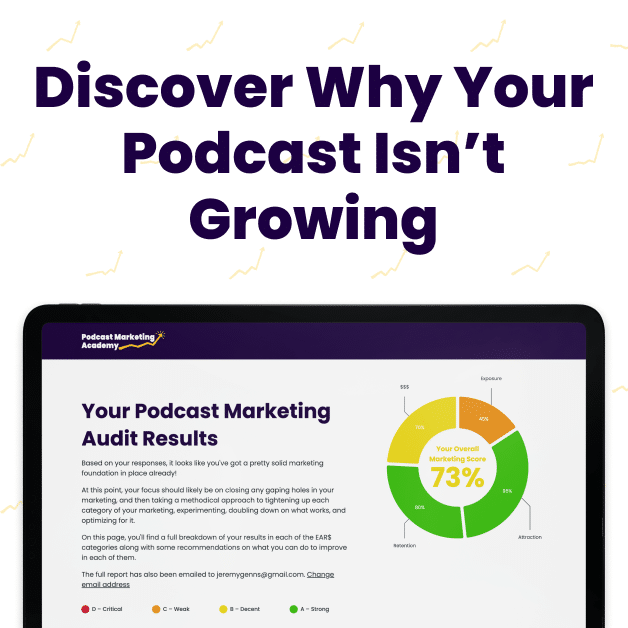While Apple has produced a number of iconic ad campaigns over the years, one of the most memorable is surely the “I’m a Mac/I’m a PC” series.
In the ads, PCs were personified by a hapless (if friendly), doughy middle-aged office worker.
Macs on the other hand were portrayed by Justin Long as casually hip, carefree, and unworried by the various maladies that seemed to constantly befall his unlucky PC counterpart.
The ads are memorable for their stark production style and wry humour.
But what makes them work as marketing material is how they highlighted Apple’s positioning.
And whether you’re pitching a computer or a podcast, positioning is one of the most important decisions you’ll make when it comes to your marketing strategy.
Positioning, in a nutshell, is how you present the space your product (in this case, your podcast) occupies in the marketplace relative to other similar offerings.
For example, if your niche is dominated by long-form, in-depth episodes, you might choose to position your podcast as the “quick-hit, everything you need to know in 15 minutes” alternative.
Used effectively, positioning is one the most powerful tools available to help grow your podcast.
The hard part, however, is deciding which of your show’s traits are worth building your positioning around.
To help define and clarify your positioning, it’s worth taking a page out of Apple’s book and define your podcast’s villain.
Your podcast’s villain might be a person, company, or another show such as how poked fun at PCs in the “I’m a Mac” campaign.
But it might also be something more subtle or amorphous: The status quo in your niche, a certain set of ideals, or societal system that treats people inequitably.
Perhaps your villain is the same boring, surface-level conversations that happen on every podcast in your niche but lack real depth.
Your villain doesn’t have to be universally evil or even bad. It might just be boring, banal, misguided, or undesirable for a specific group of people, you likely chief among them.
Regardless, by clearly defining who or what you stand against, it becomes much clearer how to position yourself as a compelling alternative.
If they’re the villain, after all, to like-minded listeners, your podcast must be the hero.





